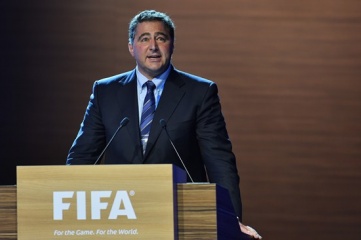The FIFA Audit and Compliance Committee on Thursday proposed a wide-reaching reform of the organisation and its “old boys’ networks”, including a break up of its powerful Executive Committee.
A FIFA reform plan drafted by Domenico Scala, chairman of the FIFA Audit and Compliance Committee, proposes the following eight points: Enhanced and centralized integrity checks; Introduction of term limits; Direct election of FIFA Executive Members by the Congress; Disclosure of individual compensations; Increased efficiency and enhanced independence of Standing Committees; Higher standards of governance at Confederation and Member Association levels; Revised World Cup bidding rules and procedures; and Improvements regarding FIFA’s organisation and structure.
“The greatest current risk in/for FIFA is the present institutional position and structure of the FIFA Executive Committee and the conduct of some of its members,” Scala’s report states.
“The Executive Committee has too many powers and competences and is de facto more powerful than the Congress.”
The “most significant single problem” of the ExCo is the misconduct of some of its members, some of whom hold “multiple functions as a member of FIFA's Executive Committee, as a member of executive bodies of Confederations and/or national associations,” the reports states.
The report also highlighted “the existence of 'old boys' networks' along the Executive Committee - Confederations - Member Associations line (as well as within these bodies).”
“The most recent incidents and developments - especially those that occurred in May 2015 - manifested the considerable virulence of these risks.”
The solution proposed is to break the ExCo up into two entities, one responsible for strategic decisions and another for business administration.
“The Executive Committee in its present form needs to be split into two different bodies: A Governing Board dedicated to strategic issues, and a Management Board entrusted with business management.”
Scala also recommended that FIFA must also exert higher standards of governance on Confederations and Member Association levels.
“Some Confederations and FIFA member associations have proved vulnerable when it comes to establishing and complying with governance standards.
“Combined with the phenomenon of 'double' and 'triple heads' in particular, this constitutes an especially virulent risk for FIFA Executive Committee members, the Executive Committee and FIFA as a whole.
“In an attempt to minimise this risk, the Confederations and the national associations - where applicable - have to be obliged to establish and comply certain minimum standards of governance.”
To hear more about the changing face of sports governance and much more, visit HOST CITY 2015, with speakers from FIFA, IOC, CGF and many more world leading events and cities.


